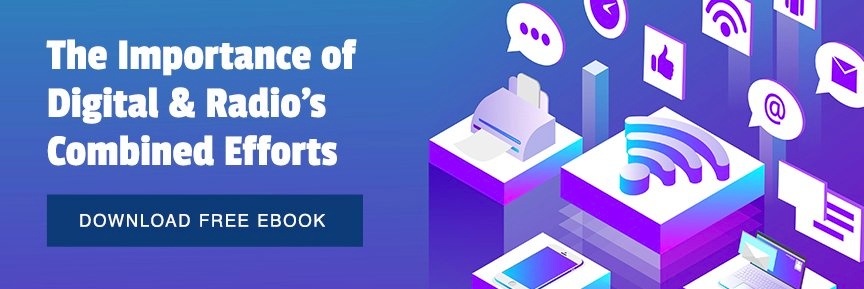The global pandemic thrust virtual events into the limelight, and there’s no indication that they’re slowing down anytime soon.
In fact, the popularity of virtual events increased by 35% from 2020 to 2021. Virtual events aren’t simply an alternative to in-person events, they offer a new way to reach and engage with audiences.
Businesses can further enhance the virtual event experience — and collect valuable marketing data — by incorporating contests into the event.
HOW DO YOU USE CONTESTS?
So, when we’re talking about contests, are we talking about Wheel of Fortune? Of course not!
In general, contesting consists of giveaways of items or services that fit within the category of the show/business. At a virtual home show, for example, giveaways might include a furniture store offering an end table or a greenhouse offering a gift card.
An effective contest for a virtual event includes a simple online registration form. Users are asked to provide some information about themselves in exchange for a chance to win the prize.
“With a contest, you’re really looking to gather email addresses so you can build a database of engaged customers,” says Ryan Williams, director of content fulfillment at Federated Digital Solutions. “Asking questions in your contest creates an opportunity for you to follow up with an email that touches your audience's pain points.”
Questions can cover demographic information, like zip code or gender, as well as interests or intentions like “Do you plan to buy furniture for your house in the next 6 months?”
If users opt in to receiving marketing emails as part of the contest, you may want to ask a question to create a valid business reason to follow up with them. For example, a roofing company may ask the age of a user's roof as part of their contest. They can then create a set of custom marketing emails to send to those users based on the age of their roof.
“If they have a 20-year-old roof, you might send them an email offering a 10% discount or roofing installation. If they have a new roof, you may just send them a thank you email that also lists your services,” Williams says. “Questions in contests give you insight into your audience that you may not otherwise ever get.”
Ultimately, re-engagement with your audience should be the goal of your contest. By gathering this first-party data, you’re able to continue to have a conversation with them after the event is over and market to them in the future. This can lead contest entrants to becoming your customers.
DISTRIBUTING YOUR CONTEST
As important as your contest is, you need to consider what distribution methods you’ll use. Let’s take a look at the different forms of distribution and how they can enhance your contest’s reach.
RADIO: Promoting your contest on the radio is a fantastic way to expand your local reach. Your radio ads can pull double duty and promote the fact that you’ll be attending or hosting the virtual event as well as directing people to participate in your contest. Promotions can include individual ads and live on-air mentions.
SOCIAL MEDIA: With the prevalence of social media, it’s a given that you should be sharing and promoting your contest here. Share the link to your registration form so you can collect entries. You can run your own contest directly on social media, but keep in mind that will only help your page’s engagement and won’t allow you to collect email addresses or other data. Also keep in mind that each social media platform has different rules about running contests on the platforms directly, so check the rules before you start the contest.
EMAIL: Email is the king of contest distribution. If you’re using your own email database or working with a radio station to piggyback off of their database, you’ll be using first-party data. That means that the information you’re using is valid and hasn’t been scraped by an AI system through a social media platform. Because you can be assured that the data being used is valid, you can target an audience with your contest more accurately.
“Email is the big one when it comes to distributing your contest. If you’ve got good data you’re setting yourself up for success,” Williams says. “That being said, the more ways you can get your contest in front of people the better off you’ll be.”
TEXT CLUBS: Text clubs can work nearly as well as email for distribution of contests. The catch here is that you need to have a text club to begin with. Many businesses don’t have their own text club. Leveraging the power of radio stations like 95.3 MNC, which have a large text club database, can be an effective option.
CONTEST TIMELINE
To effectively use a contest to enhance your virtual event, you’ll need to understand the lifespan of a contest.
Using an integrated approach to distributing your contest will offer you the best potential for returns.
For example, the 95.3 MNC Virtual Home Show launched with an overall email about the show and contesting. After that, it was supported with individual contest emails for each business involved, a Facebook campaign, and on-air promotions on 95.3 MNC.
On-air promos included a general ad that rotated between all of the businesses involved in the Virtual Home Show in groups of three. There were also daily mentions during the morning show, where one business was highlighted during a segment of the show throughout a two-week period.
On days when a business was promoted on-air during the morning show, an email was sent out that highlighted the business that was talked about for the featured room/prize. Facebook posts were also created and promoted in a similar fashion.
Let’s take a look at what the life of a contest looks like.
PRE-EVENT: This is where the majority of your contest promotion will be taking place. During your pre-event promotions, email and social media are must-dos. Incorporating radio ads can have a positive effect in also letting people know you’ll be at the event. Your messaging will change depending on when your contest starts.
- If a contest is only open for registration during the event, you’ll want to only focus on the event details during your pre-event promotion.
- If the contest is open for registration during pre-promotion until the end of the actual event, promote your contest AND the event details.
DURING EVENT: At this stage, you want to continue to use social media and email marketing to promote your contest. Focus your email marketing on reaching out to the people who have engaged with you already.
Ideally, you’re sending two different messages and having two different conversations with the people you can contact.
- If your audience interacted with your pre-event email, focus your message on reminding them that the event is happening. For example: “Don’t forget the Virtual Home Show is going on right now! You can still enter to win this awesome end table.”
- If your audience didn’t interact with your pre-event email, focus your message on reminding them about the event. For example: “Did you know that the Virtual Home Show is happening right now?”
If your event is live — like a webinar, concert, or other live-streamed events — you want to make sure you’re promoting your contest during the event.
It’s important to encourage people to participate during these live events. Include a clickable link or a text keyword somewhere in your event’s online interface.
For example, if you’re live-streaming on Facebook Live, you could include a text shortcode or link in the description of your video. If you’re hosting the virtual event on your website, make sure to include contest links or text shortcodes in obvious places around the event page.
POST EVENT: Once the event is over and the contest has run its course, it’s time to utilize the information you gathered. This is the time to re-engage with your audience and continue the conversation. Create drip emails ahead of time that will trigger after the event is over. The topics of each email should be based off the answers that people gave when they completed your contest’s entry form.
Contests are valuable tools that can enhance the effectiveness of your participation in a virtual event. However, you don’t want to lose sight of the fact that your business is part of a large-scale event and it’s important that everyone is successful in the virtual event.
“If you’re doing a contest, doing a virtual event, hosting a webinar and you get people to participate in the webinar and the contest that’s great for you, but that’s not necessarily great for the event overall,” Williams says. “The key is to make sure that everyone has success so the event can continue. Otherwise, the event itself won’t continue and you’re losing a resource.”


